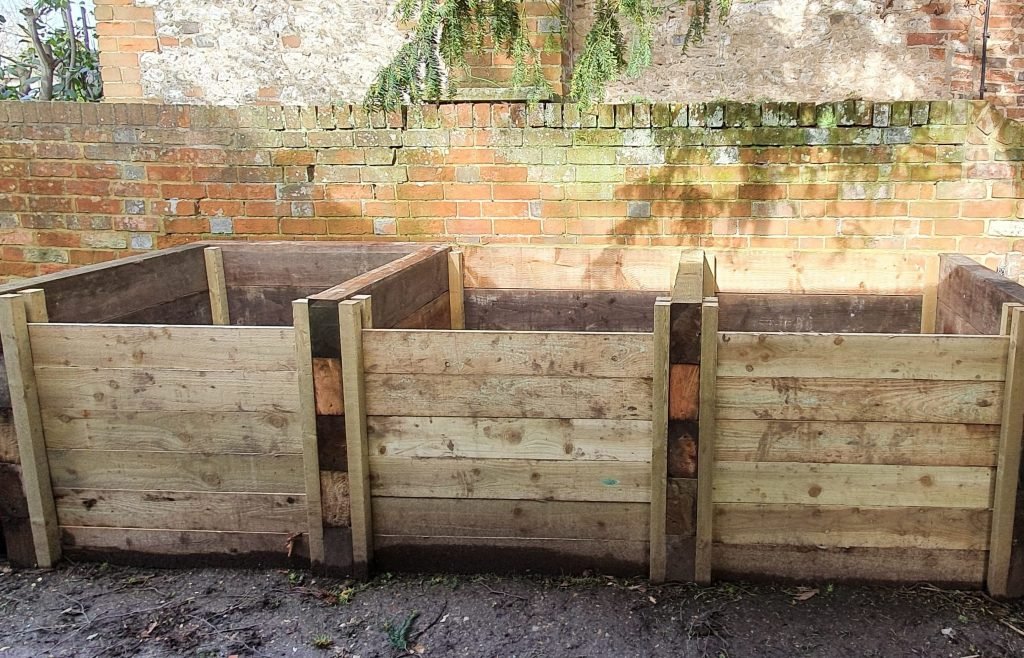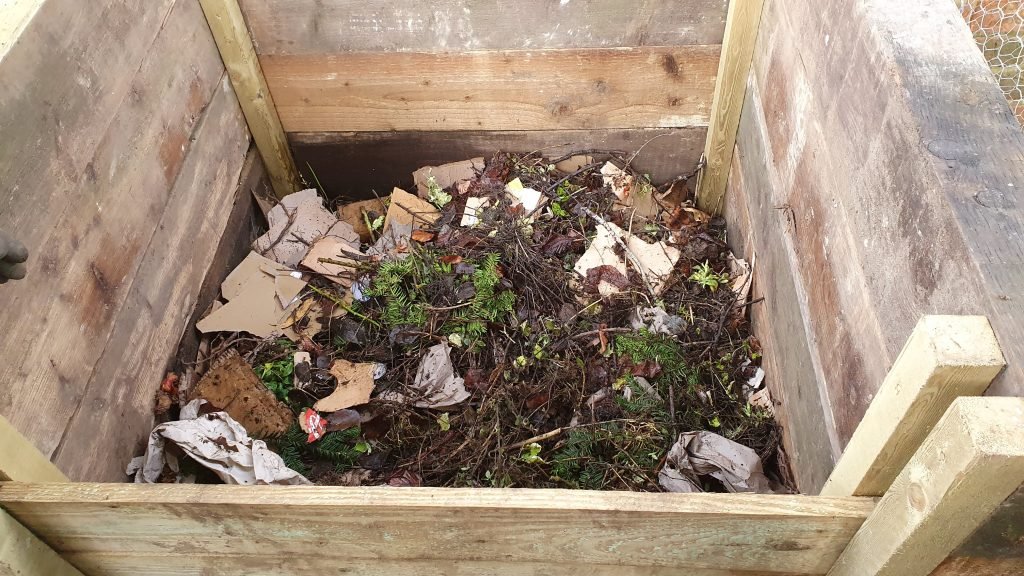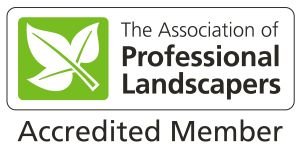
Recently the Design & Build Team put in some compost bays in one of the gardens we care for in Aston Tirrold. If you currently have more time on your hands, why not start your own compost bin? Here’s everything you need to know about composting. Remember…Keep Calm and Compost on!
I’m a big advocate of garden-based composting so I apologise in advance as I climb up on top of my compost heap to preach its’ virtues!
#1 Garden-based composting reduces your carbon footprint
There are lots of good reasons to compost. At the moment, if we remove waste from your garden then it is transported to a local green waste processing plant called Agrivert to be turned into compost. Yay!! But can you reduce your carbon footprint even further by processing the majority of garden waste within your garden? The best bit is that you can then use the compost produced to reduce your annual mulching costs and to feed all the lovely plants in your garden, which should give you healthier and more productive specimens.
Fun Fact: Did you know, composting at home for just one year can save global warming gases equivalent to all the CO2 your kettle produces annually, or your washing machine produces in three months? Find out more.
#2 Using compost to mulch helps combat the effects of climate change on your plants
The structure of the soil depends largely on the presence of organic matter. The worms eat organic matter (i.e. compost) and create channels of air as they move through the soil. Plant roots and soil animals need this air to breathe. The channels also fill with water after rain. Smaller channels also exist between the crumb structure of healthy soil which helps retain moisture. The more compost you can make and use on the soil, the better the crumb and soil structure, which also reduces the need to give plants additional water in drier weather. Another vital step in garden care now we are seeing the changes in climate and an increase in hot dry periods each year.
#3 You don’t need to add a lot of compost to the soil to make a big difference to the plants
I was relistening to an old Sow, Grow Repeat podcast by Alice Fowler (my gardening hero) and Jane Perrone where they and others extoled the virtues of compost and discussed different methods of composting and one expert talked about the amount of self-made compost you would need to put down to feed the soil (and therefore your plants) and it is only ¼ of an inch!
#4 You reduce your need for chemical/artificial fertilisers to feed the plants
Compost is an amazing natural source of essential mineral nutrients for your plants. It will have everything your plants need including nitrogen, phosphorus, and potassium and it will help buffer soils that are very acidic or alkaline. It can also help to keep the soil PH in check and helps to suppress plant disease.
Are you convinced yet? No…keep reading, I haven’t given up yet ?

When I have spoken to clients about composting, here are some of the reasons people give for not composting. Let’s see if I can answer your concerns and perhaps change your mind and convince you to give it a go.
#1 “I don’t have a compost heap”
If you have space for composting we can build some bays to suit your space. Here’s some we created earlier…

#2 “I don’t have the space for a compost heap”
If you don’t have the space for a heap you can get all shapes and sizes of bins online or in garden centres. You can also get wormery bins which are relatively small and allow you to recycle a more diverse range of food waste. Check out these ideas for composting in tiny spaces!
#3 “I don’t have the time to compost”
Compost doesn’t have to be labour intensive. Once you know what to compost it doesn’t have to take a lot of time and if you position the bin well, then it’s just like filling a garden waste or food waste bin. It is important to turn the heap to help the process, but you only have to do this about once a week, (and it is a good workout). If this feels like too much work, we can manage your compost for you and turn the heap on our visits. All you have to do is leave the waste we need to add in an accessible place in the garden.
#4 “I don’t know what I should and shouldn’t put into my compost bin”
We can provide you with a handy laminated sheet which tells you what to put in it. You can also add paper and cardboard in your bin as this helps with managing the moisture levels and adds carbon to your heap. This helps to further reduce your carbon footprint. Brilliant or what?

#5 “My old heap didn’t really seem to work”
Heaps have to be managed. You have to get the right carbon and nitrogen ratio to get the heap working effectively. Our handy composting guide will help you put the right things in to get lovely black fertile compost out.
#6 “It seems to take ages”
Composting isn’t a super quick process. It takes months rather than weeks. You can speed up the process by adding different materials into the mix but the best way to make the compost quickly is to cut up the waste into small pieces. Helpfully, we will do this when we manage your compost. However, another way to do this is to invest in a garden shredder which will cut the waste up even smaller and speed up the composting process significantly.
#7 “Compost heaps attract rats”
There are a few things you can do to dissuade wildlife from settling into a compost heap. Rats are much more likely to nest in your heap if it remains undisturbed i.e. if you turn your heap regularly, they will find another place to build their nests. Foodstuffs can encourage pests particularly things like eggshells. If you bake your eggshells to dry them out before adding them to the pile, they will not attract rats. (Alternatively, dispose of them in your council food waste bin instead).
I don’t expect you to be as enthusiastic a composter after reading this as I am but I hope (as I climb back down off my heap) that I have convinced you to give garden-based compost a try. Go on, you know you want to ?
And if you want more information about Green Art custom compost bays or what and what not to add to your heap, get in touch for our handy guide!









